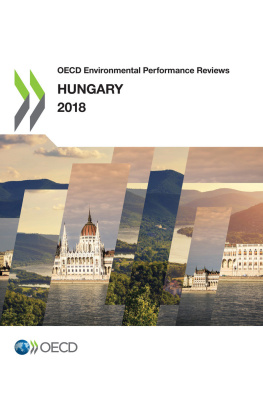coll. - Abbreviations and acronyms
Here you can read online coll. - Abbreviations and acronyms full text of the book (entire story) in english for free. Download pdf and epub, get meaning, cover and reviews about this ebook. year: 0, genre: Politics. Description of the work, (preface) as well as reviews are available. Best literature library LitArk.com created for fans of good reading and offers a wide selection of genres:
Romance novel
Science fiction
Adventure
Detective
Science
History
Home and family
Prose
Art
Politics
Computer
Non-fiction
Religion
Business
Children
Humor
Choose a favorite category and find really read worthwhile books. Enjoy immersion in the world of imagination, feel the emotions of the characters or learn something new for yourself, make an fascinating discovery.
Abbreviations and acronyms: summary, description and annotation
We offer to read an annotation, description, summary or preface (depends on what the author of the book "Abbreviations and acronyms" wrote himself). If you haven't found the necessary information about the book — write in the comments, we will try to find it.
coll.: author's other books
Who wrote Abbreviations and acronyms? Find out the surname, the name of the author of the book and a list of all author's works by series.
Abbreviations and acronyms — read online for free the complete book (whole text) full work
Below is the text of the book, divided by pages. System saving the place of the last page read, allows you to conveniently read the book "Abbreviations and acronyms" online for free, without having to search again every time where you left off. Put a bookmark, and you can go to the page where you finished reading at any time.
Font size:
Interval:
Bookmark:

OECD (2018), OECD Environmental Performance Reviews: Hungary 2018 , OECD Publishing, Paris.
https://doi.org/10.1787/9789264298613-en
This third Environmental Performance Review of Hungary shows that significant progress has been made in decoupling growth from environmental pressures. Hungary, the first EU member state to ratify the Paris Agreement, has shown its commitment to developing a low-carbon economy. Since 1990, its total gross greenhouse gas emissions have decreased by 35% and regulatory frameworks have been strengthened.
However, its energy supply remains largely dependent on fossil fuels and frequent institutional changes and capacity constraints impede more effective implementation of environmental law. To achieve long-term climate-related targets, Hungary needs to improve the energy efficiency of its buildings, further develop renewable energy resources and promote sustainable transport. Air pollution, especially fine particulate matter, is a serious health concern, while surface water quality remains poor despite large-scale investments in wastewater treatment infrastructure.
The review looks in detail at waste management and biodiversity protection. While Hungary has made progress in waste recycling and recovery, more than half of the countrys waste is deposited in landfills, a higher proportion than its EU neighbours. Despite efforts to improve resource efficiency, sustainable material management has not yet been integrated into sectoral policies. A whole-of-government approach is needed to facilitate Hungarys transition to a circular economy.
Protecting Hungarian biodiversity, which includes the largest continuous natural grassland in Europe, is also key. Hungary has a well-developed network of protected areas covering over 22% of its territory, exceeding the respective international target. However, their management requires increased public budget support to maintain biodiversity conservation priorities. The country has made progress in integrating biodiversity considerations into policy making for agriculture, forestry and fisheries sectors, but more efforts are needed to mainstream biodiversity protection into energy, transportation, tourism and industry strategies.
This review is the result of extensive policy dialogue between Hungary and the other members and observers of the OECD Working Party on Environmental Performance. It presents 36 recommendations to help Hungary to advance towards a greener, low-carbon economy, to better manage its natural assets and to improve its environmental governance and management.
I am confident that this collaborative effort will support Hungary as it continues to design, deliver and implement better environmental policies for better lives.

Angel Gurra
Secretary-General, Organisation for Economic Co-operation and Development (OECD)
The principal aim of the OECD Environmental Performance Review programme is to help member and selected partner countries improve their individual and collective performance in environmental management by:
helping individual governments assess progress in achieving their environmental goals
promoting continuous policy dialogue and peer learning
stimulating greater accountability from governments towards each other and public opinion.
This report reviews Hungarys environmental performance since the second review in 2008. Progress in achieving domestic objectives and international commitments provides the basis for assessing the countrys environmental performance. Such objectives and commitments may be broad aims, qualitative goals or quantitative targets. A distinction is made between intentions, actions and results. Assessment of environmental performance is also placed within the context of Hungarys historical environmental record, present state of the environment, physical endowment in natural resources, economic conditions and demographic trends.
The OECD is grateful to the government of Hungary for its co-operation in providing information, for the organisation of the review mission to Budapest (29 May to 2 June 2017) and for facilitating contacts both inside and outside government institutions.
Thanks are also due to the representatives of the two examining countries, Andrea Nouak (Austria) and Bogusawa Brzdkiewicz (Poland).
The authors of this report were Carla Bertuzzi, Ivana Capozza, Nathalie Cliquot and Eugene Mazur from the OECD Environment Directorate and Rachel Samson of Carist Consulting. Nathalie Girouard provided oversight and guidance. Carla Bertuzzi also provided statistical support; Annette Hardcastle and Natasha Cline-Thomas provided editorial and administrative support; and Mark Foss copy-edited the report. Preparation of this report also benefited from comments from several members of the OECD Secretariat, including Katia Karousakis of the Environment Directorate, Jens-Christian Hoj and Paul OBrien of the Economics Department, Kurt van Dender and Luisa Dressler of the Centre for Tax Policy and Administration, and Juan Casado Asensio of the Development Co-operation Directorate.
The OECD Working Party on Environmental Performance discussed the draft Environmental Performance Review of Hungary at its meeting on 13 February 2018 in Paris, and approved the Assessment and Recommendations.
Font size:
Interval:
Bookmark:
Similar books «Abbreviations and acronyms»
Look at similar books to Abbreviations and acronyms. We have selected literature similar in name and meaning in the hope of providing readers with more options to find new, interesting, not yet read works.
Discussion, reviews of the book Abbreviations and acronyms and just readers' own opinions. Leave your comments, write what you think about the work, its meaning or the main characters. Specify what exactly you liked and what you didn't like, and why you think so.



















